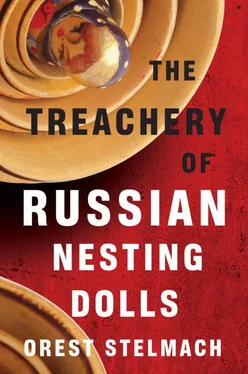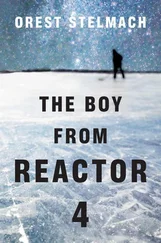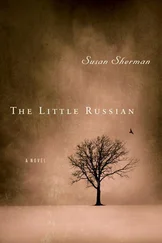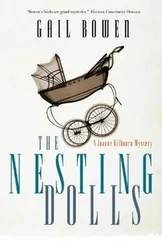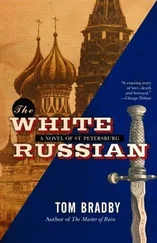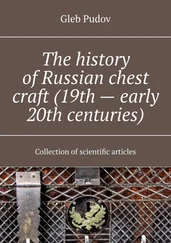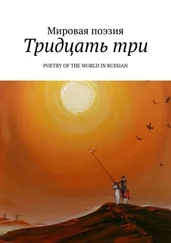She pursed her lips as though I was a poor actress. I, of course, refused to yield. I was certain I was a damned good one, especially when dressed in a lime green bikini in red-light districts that featured poor lighting.
“I didn’t recognize him without his red Rasta hat and dreadlocks,” I said.
Maria frowned. “His what?”
I nodded at the picture where Sasha wore his hair at shoulder length in its naturally greasy state for all to see.
“When I met him, Sasha was not… Sasha,” I said. “In fact, he didn’t look anything like this.”
“Eh?”
Maria hadn’t seen her surrogate son in quite some time, or she’d have understood what I was talking about. Neither had George, I inferred. Sasha’s Rasta get-up was so eccentric that it would have stimulated instant gossip between husband and wife regardless of what else was going on in their lives. I was as certain of this as they both were that their surrogate son was innocent in any wrongdoing in their daughter’s murder.
“George used that same phrase when he first told me Sasha’s name. ‘Sasha is… Sasha,”’ I said. “It’s like a family mantra where he’s concerned. What exactly do you mean by that?”
Maria shrugged. “He’s a dreamer. Always was, always will be. Some boys want to be men but they never learn how. And that is why we say Sasha… is Sasha.”
“Why do you say he’s a dreamer?”
“Just that. He’s always hatching one scheme or another to try to make his fortune, as opposed to going to school, getting a job, and working for a living. Now it’s these silly t-shirts that look like something a six year-old could design. Before that it was his reggae band, and before that it was the acting.”
“Acting?”
“We paid for three years of lessons. He actually had talent. He got three roles in local plays, but he wanted to star in movies and when it didn’t happen right away he quit. No patience. No vision. He even had an agent but he lost his temper with him and burned that bridge, too.”
I was surprised to hear that Sasha had a temper. This revelation forced me to consider the possibility that Sasha had been acting when we’d met, that he wasn’t as sweet and honest as he’d appeared to be.
I studied every square inch of the picture again, as though I were looking at it for the first time. Iskra looked so different, so damn happy. That made this the most important picture of all, I thought, and made me wonder if there was anything else noteworthy about it. I studied her parents, Sasha, the people on the foreground and background, and even the signs around the museum, but found nothing out of the ordinary. My refusal to give up surprised me. I wasn’t sure if my instincts were telling me that I was missing a clue that was staring me in the face or I was becoming desperate and searching for something that wasn’t there.
“You said you think Iskra was afraid of something,” Maria said.
“Not something. Someone.”
“Does she looked frightened in this picture?” Maria said.
I glanced at Iskra yet again. There was no doubt about it. I wasn’t misinterpreting. She looked uncharacteristically radiant and stress-free.
“I’d say she looks anything but frightened,” I said.
“That’s my girl,” Maria said, smiling wistfully at the photo.
“But you must admit that she looks troubled in these other pictures.” I pointed to the series of photos that captured the time period from earliest childhood to the final shot of her. “Is it possible that someone did something to allay her fears right before she was killed?”
A flicker of consternation crossed Maria’s face, as though she knew that Iskra had been terrified of someone. But it vanished just as quickly, no doubt an unbearable reminder of her daughter’s true disenchantment.
“George said you’d be persistent, that you would ask difficult questions, and that I should be happy about it. He said you’re our best chance of finding Iskra’s killer. He said the Dutch police—they don’t give a damn about a dead Russian girl. But I’ve just about had it with your rudeness. You tell me she was scared, I tell you she wasn’t. But you just won’t listen to me—”
“I’m so sorry,” I said. “I don’t mean to appear disrespectful. I’m just trying to reconcile what you’re telling me with what other people told me.”
“What other people?”
“And those people—at least one of them—saw her on a regular basis. One of them worked with her and insisted that she was terrified of someone—”
“Who said that? That disgusting brute? The one that was supposed to guard her and used her body instead? What does he call himself, the Greek?”
“The Turk?”
“Yes, that’s the one. He gives all Greeks and Turks a bad name.”
“How do you know him?” I said. “Have you met him? Personally?”
“Of course I know him. I knew all the people in my daughter’s life.”
“When and where did you meet him?”
Maria Romanova frowned as though she had no idea, or more likely, was falling into one of her trances and losing the gist of our conversation. I quickly spoke up to keep her on point, desperate for her to stay in the moment until she helped me flesh out this unexpected revelation.
“The Greek,” I said, “as you called him…
She continued staring into space. I cursed under my breath and tried to will her to focus on me.
“Did you meet him in De Wallen ?” I said.
I emphasized the last two words thinking the name of the red-light district where her deceased daughter had been employed might resemble the sound of fingernails scraping a blackboard to her mother’s ears.
But it had no such effect. Instead, my reference to Iskra’s choice of vocations served only to immerse Maria into a deeper fog.
“Or did you run into him at Iskra’s apartment, when he was walking her home one evening?” I said.
Maria’s eyes regained perspective and focused in on me. “How did you know that?”
“What happened?”
“Nothing happened. We’re not savages. Iskra introduced him as her bodyguard at work and the man was actually polite. He waited for George to offer his hand and then shook it—he even called me Mrs. Romanov.”
“He was polite? Then I don’t understand—”
“He wasn’t so polite when George paid him a visit the next day,” Maria said.
I took a half step back. “George met with the Turk?”
Maria nodded.
“Alone?” I said.
She nodded again.
That was interesting, I thought, because Maria’s expression suggested she was recalling a bad memory.
“Where? In De Wallen ?” I said.
“I think so.”
“How did George find him?”
“I don’t know. You’d have to ask George that. All I know is that George found out he was taking advantage of Iskra—using her for his own pleasure—and put an end to that. The thought of that disgusting man with our daughter…”
The Turk had been honest about receiving payment-in-kind instead of money from Iskra in exchange for acting as her occasional bodyguard. I suspected Maria knew this and had altered her interpretation of history to suit her needs and create a hero—the carefree and joyful daughter of her imagination—and a villain—the thug who’d used her body for pleasure.
“If we were still in Russia, I don’t know what George would have done to that man.”
The irony was that if the Romanovs hadn’t left Russia, I thought, their daughter would still be alive. In Iskra’s case, the great personal freedom and liberal social norms Amsterdam bestowed on its citizens had facilitated a lifestyle that had helped shorten her life.
“What did George do with him?” I said.
Читать дальше
